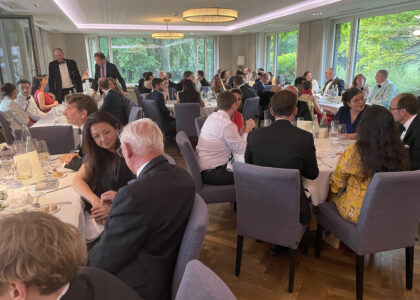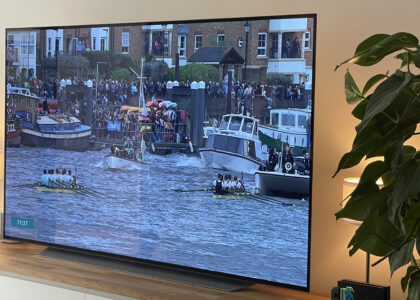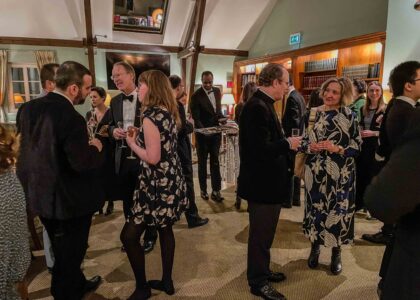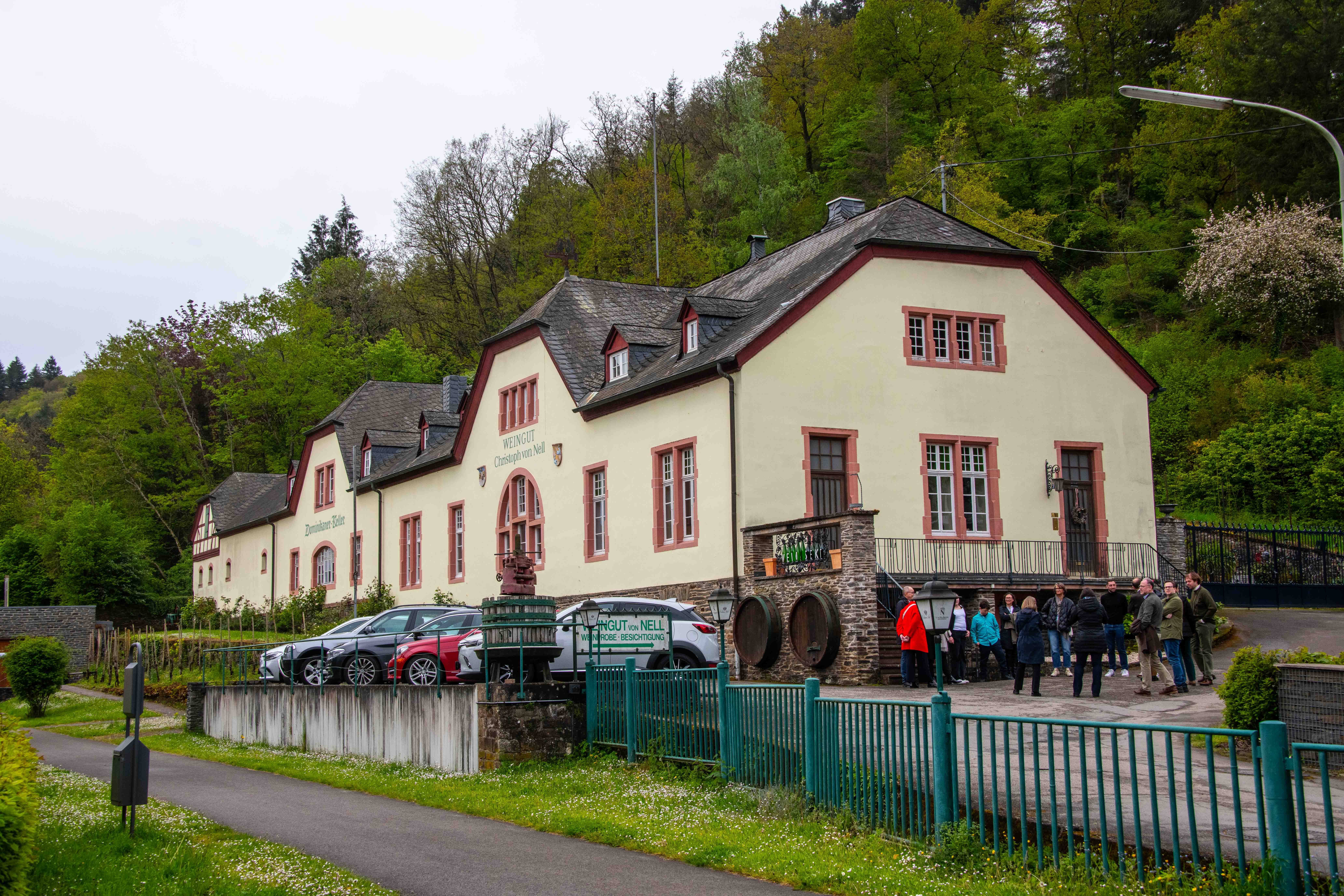
On Sunday 28 April, 2024 some 40 Oxford and Cambridge Society alumni, wives/partners and children travelled to the village of Kasel in the Ruwer wine district near Trier, to the Dominikaner Weingut C. von Nell-Breuning. Since 1670 and therefore for more than 350 years, the von Nell-Breuning family has been dedicated to the art of viticulture on the steep slate slopes of the Moselle and Ruwer. In the 11th generation, Dr. Carmen von Nell-Breuning continues this tradition and runs the family’s Dominican winery in the Ruwertal. The visit was organised by Jan Könighaus of the Oxford Society who has known Carmen for many years. Interestingly, Carmen explained to us that she worked in the Finance sector in Luxembourg until about 11 years ago she decided to return and take over the running of the winery when her parents retired.
Carmen began the visit by explaining the history of the winery, pointing out to us vineyards owned by the family on the hills overlooking Kasel. They have three estates: the Kaseler Dominikanerberg, the highest “Weinberg” in the Ruwer which is wholly owned by the von Nell-Breuning family and thus is one of the few monopole estates in Germany; Kaseler Nies’chen, one of the premium vineyards in the Ruwer with vines on slopes with an inclination up to 70%; and Kaseler Kehrnagel, another excellent vineyard. In total the winery consists of 8 hectares, of which 80% is Riesling and 20% Pinot Noir (Spätburgunder). The cool growing conditions in the Ruwer Valley ensure a long and gradual ripening period. Their Riesling grapes are usually harvested only by mid-October. This valuable extra time allows the full aromatic potential of the grapes to be expressed in light and delicate wines.
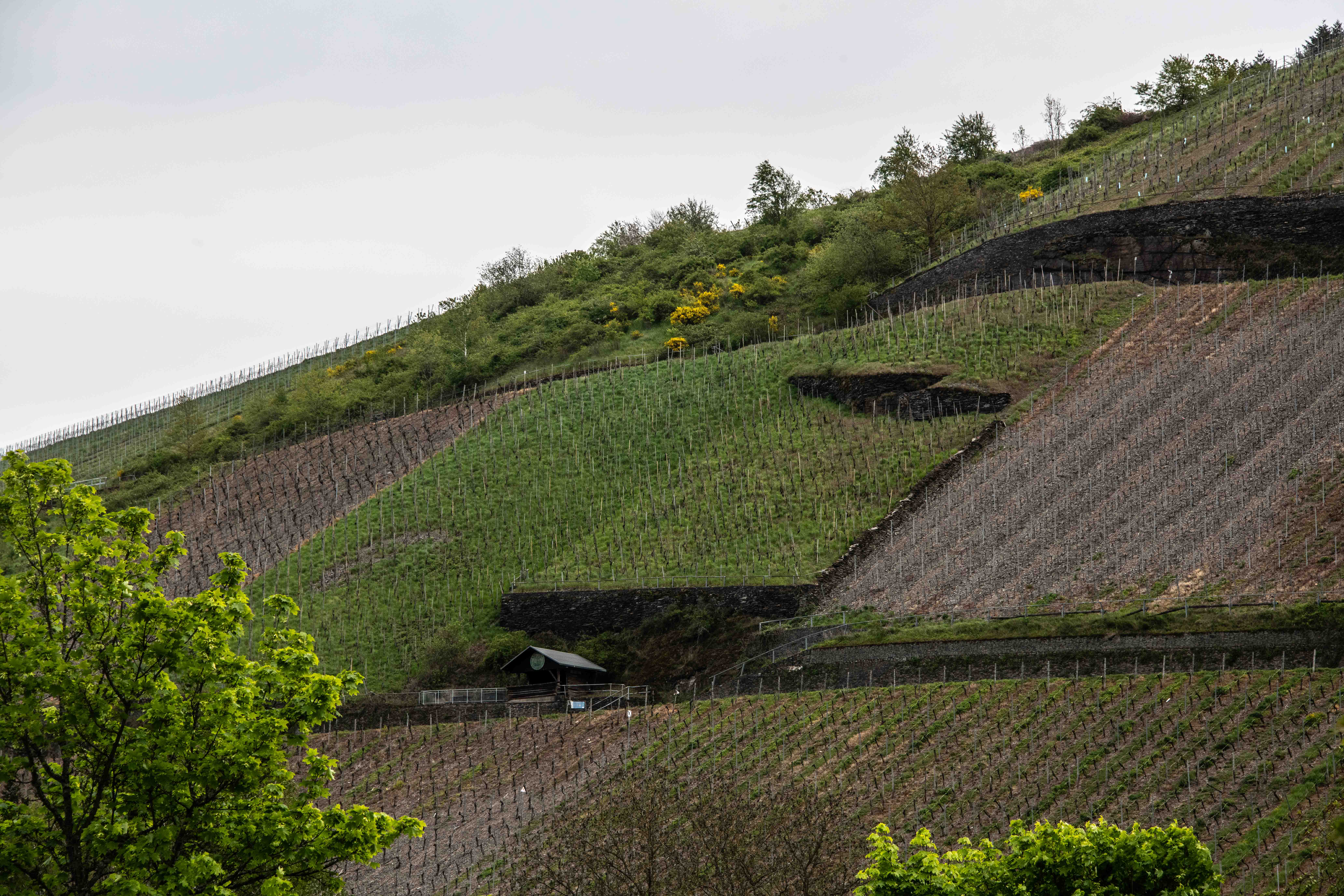
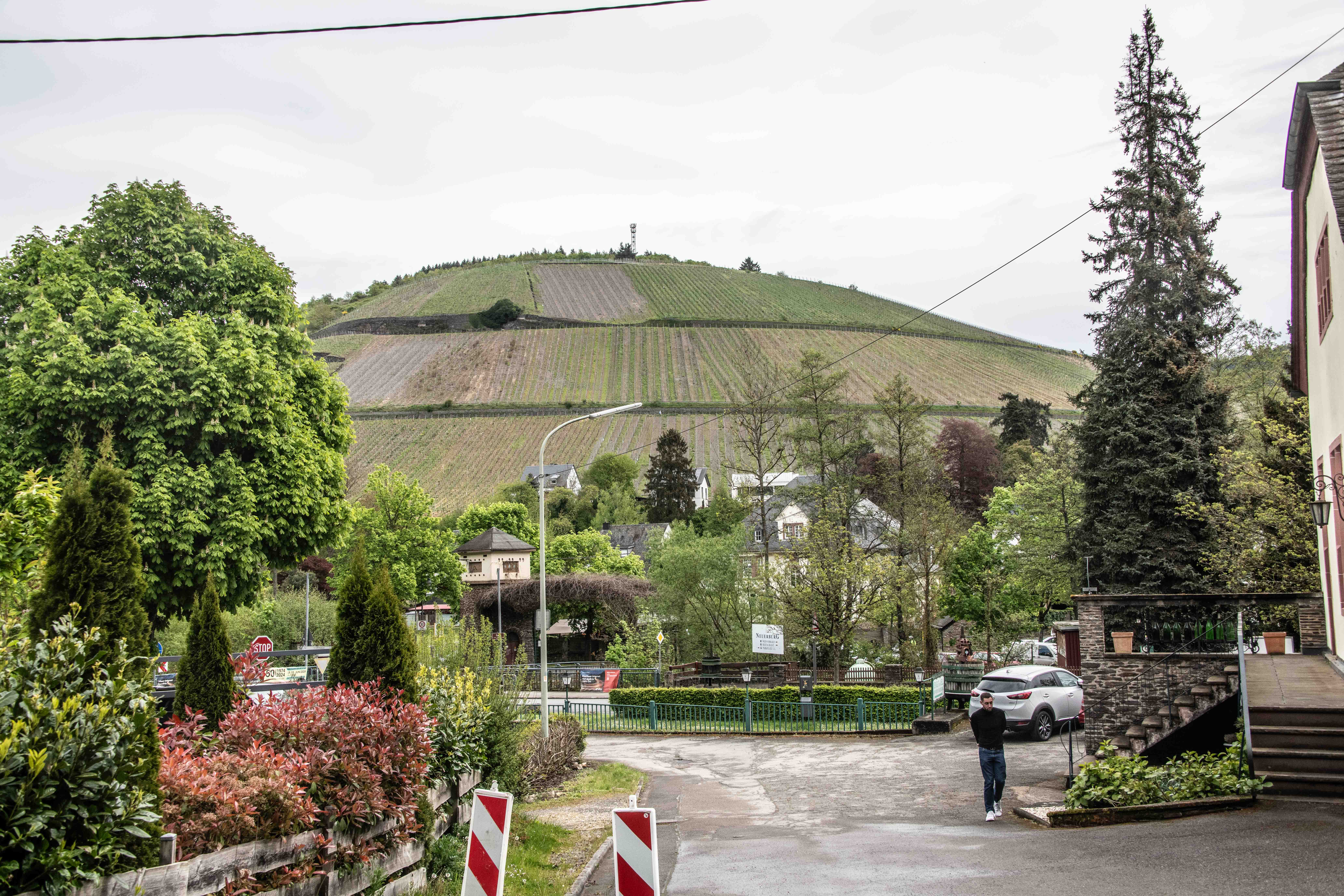
The green parcel belongs to the Weingut – evidence of biodynamie; Vineyards above Kasel
All the vine work is done by hand. As the oldest sparkling wine manufacturer in the Ruwertal, the winery also produce sparkling wine (Sekt) using traditional bottle fermentation. Since 2019, Carmen has been working in the vineyards and cellar according to biodynamic principles. They have not used any herbicides for eleven years now. The winery is a fully certified member of Demeter, the first in the Ruwer valley. Sheep live in the vineyard during the winter months. They keep the grass between the rows of vines short and break the viticulture monoculture for five months a year. They also provide useful natural fertiliser for the vines!
After passing through the despatching room with boxes of wine ready for commercialisation, Carmen took us into the first part of the cellars with the stainless steel tanks. The harvested grapes are pressed in the room above this and the juice flows by gravity into the tanks. From there we went into a large vaulted cellar where the wine develops in large oak barrels (Fass). It is then bottled and stored in another part of the cellars until it is ready for labelling and commercialisation. We also saw here the classic racks found in Champagne for the bottles of sekt which are turned by hand.
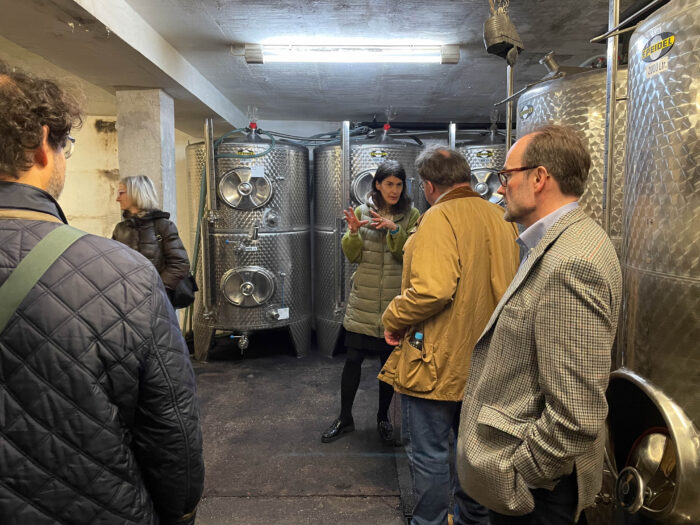
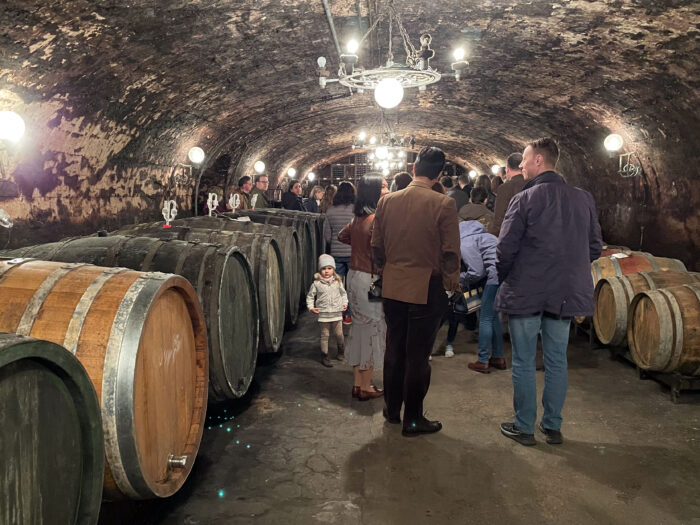
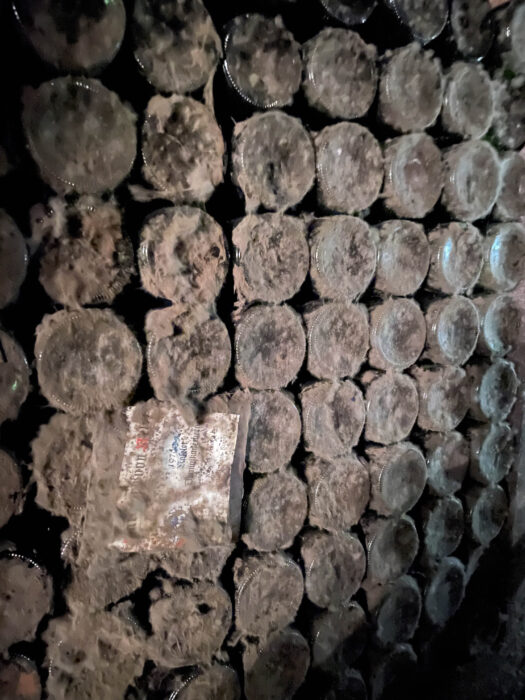
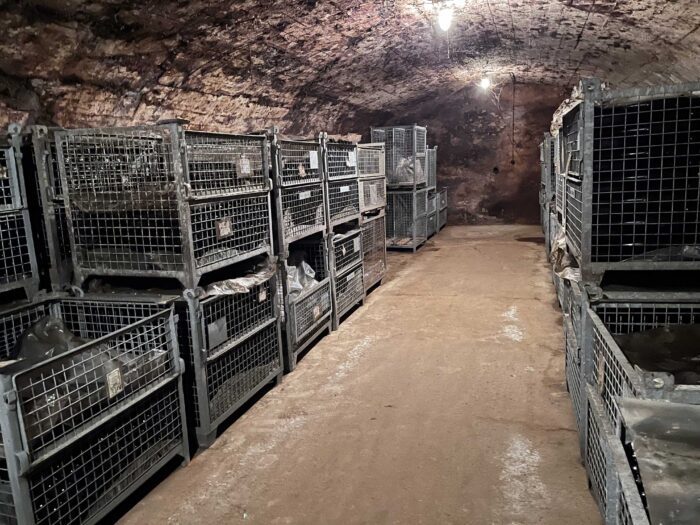
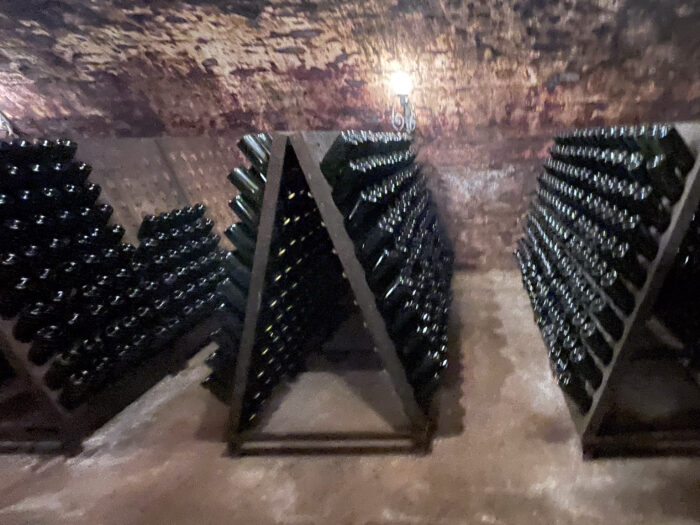
Carmen then opened the mold-encrusted gate to the “Schatzkammer”, a dark corner of the cellar where the precious old vintages of Riesling going back many decades are kept. The cold moist atmosphere of the Schatzkammer favours the development of a noble dark mold around the bottles which has no adverse effect on the contents of the bottles. Riesling is wine which ages very well, for decades, especially the wines with residual sugar (e.g. Beerenauslese, Trockenbeerenauslese), and they are worth several hundred euros. They were not included in our tasting, unfortunately!
We then went up into a splendid lounge with family portraits going back at least to the 1700s covering the walls. This also doubled as Carmen’s office. Here we were served a delicious Sekt (Stephanus extra brut, 2019) described in the wine-list as “Sehr mineralisch. Delikat und feinwürzig”. I can agree with that, it was excellent, and went straight into my wine order!! Here Carmen also explained the special relationship that her family had with Beethoven. 235 years ago, the young Ludwig van Beethoven met the von Breuning family in Bonn. As the website relates, Helene von Breuning recognised the genius of the 15 year old Beethoven and supported his early career. Beethoven was at liberty to move in and out of the von Breuning home. He taught the children piano. Daughter Eleonore von Breuning was his first love and he dedicated several pieces to her. Her brother Stephan was a close, lifelong friend of Beethoven. He accompanied Beethoven from Bonn to Vienna where he worked as a librettist on some of Beethoven’s works, including Beethoven’s only opera, Fidelio, which originally was call “Leonore”.
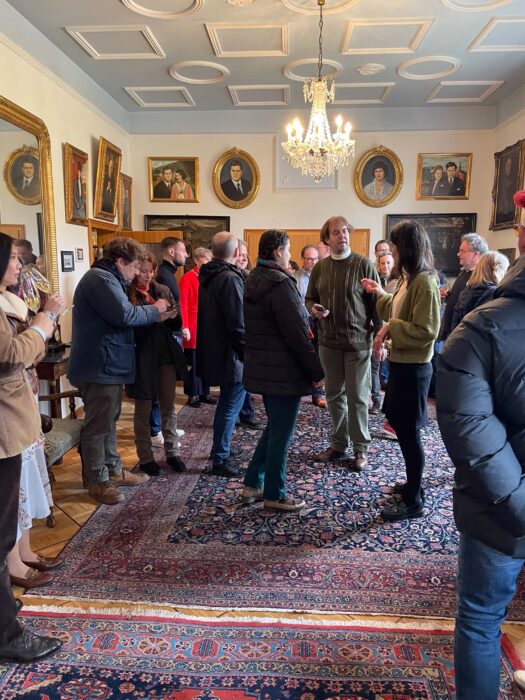
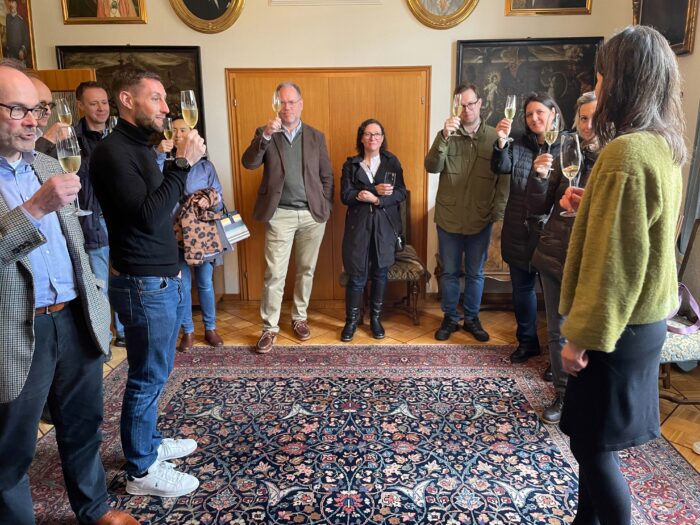
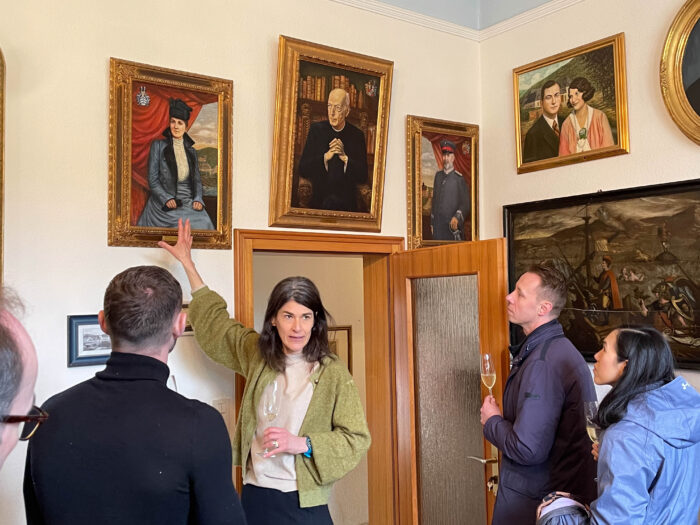
The group then adjourned to the adjacent Pauliner Hof for the wine tasting session which took place over an excellent lunch. We tasted 4 Rieslings, a Spätburgunder Rosé, and a Spätburgunder, which Carmen presented describing their different characteristics. One of the Rieslings was a Kabinett (2017 Dominikanerberg Kabinett) where Carmen had deliberately stopped the fermentation early in order to preserve a floral and slightly fruity flavour. This was an unusual but extremely attractive Kabinett wine, with an alcohol content of only 7,5%. In this climate-change period where wines with ever increasing alcohol contents are being produced, It is most refreshing to have complex, well-crafted Riesling wines from the Mosel region with low alcohol content. Many of Carmen’s wines are award-winning, and score above 90 points in the Eichelmann and other wine guides. We all certainly enjoyed them very much indeed. Carmen’s style seems to favour delicate wines with floral and fruity notes, as well as the mineral side which comes from the Devon slate of the vineyards.
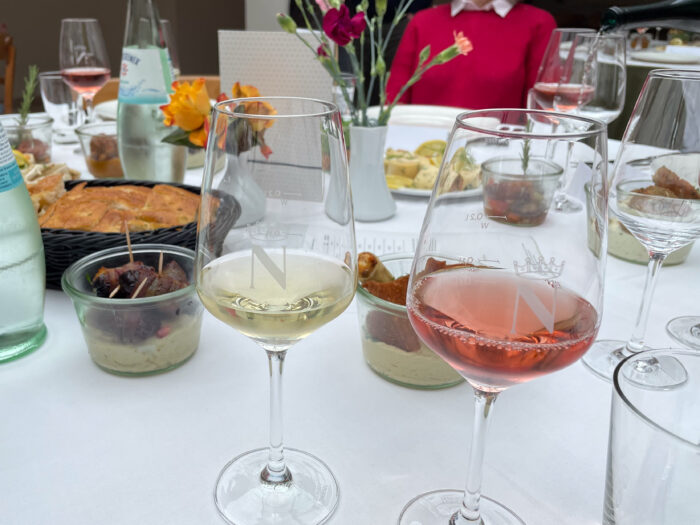
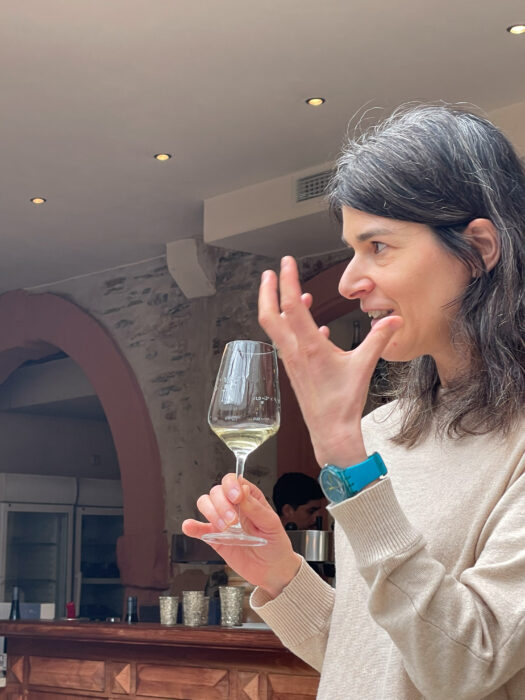
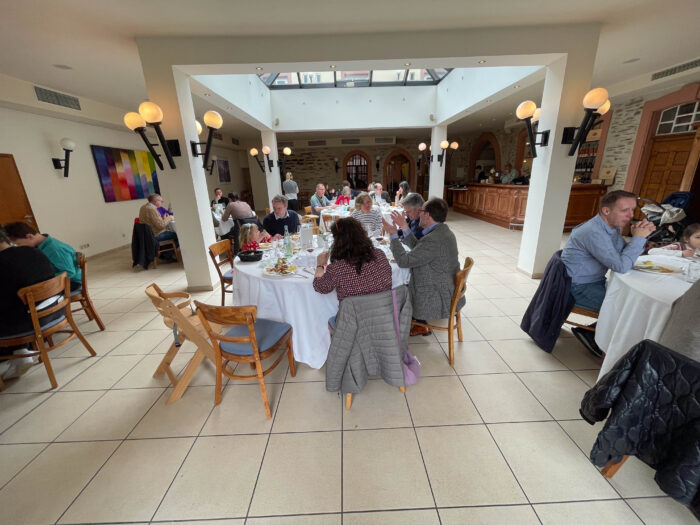
After the copious lunch some of us needed some exercise while others set off home. About 20 of us went with Carmen up for a short walk around a part of the Dominikanerberg. There Carmen showed us the frost damage from the previous week which had damaged wineries across Europe. The entire Pinot Noir vineyard was affected, with a 100% loss, so there will be no Spätburgender vintage 2024! The Riesling vines were less affected, but still Carmen estimates the loss to be 30-40%. The walk also provided us with magnificent views of the Ruwer valley and the village of Kasel. At the end of the walk we passed a slope where new vines were planted a year ago. These vines are susceptible to drought in the first few years so they have rigged up an irrigation system that they can use to stop the vines drying out.
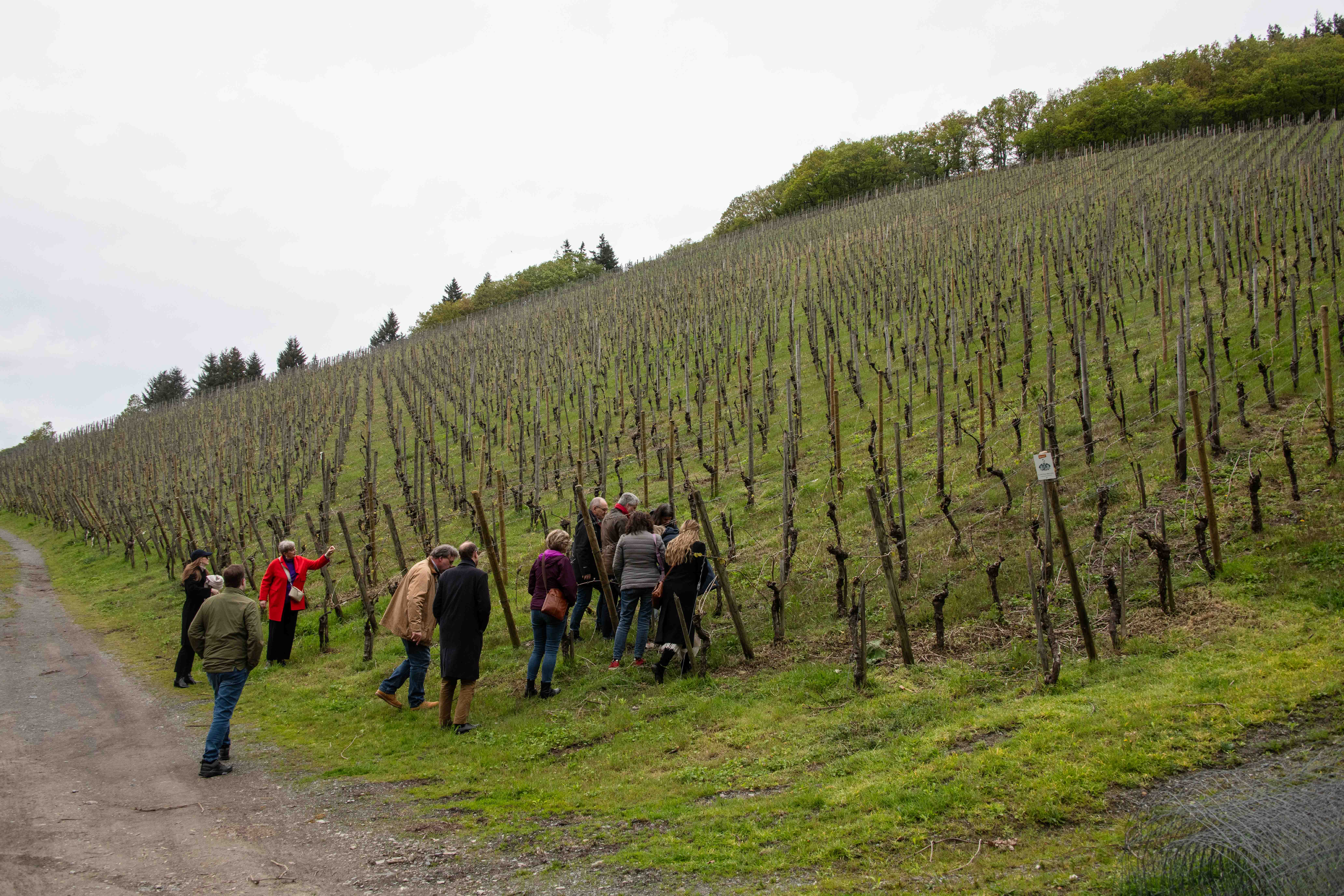
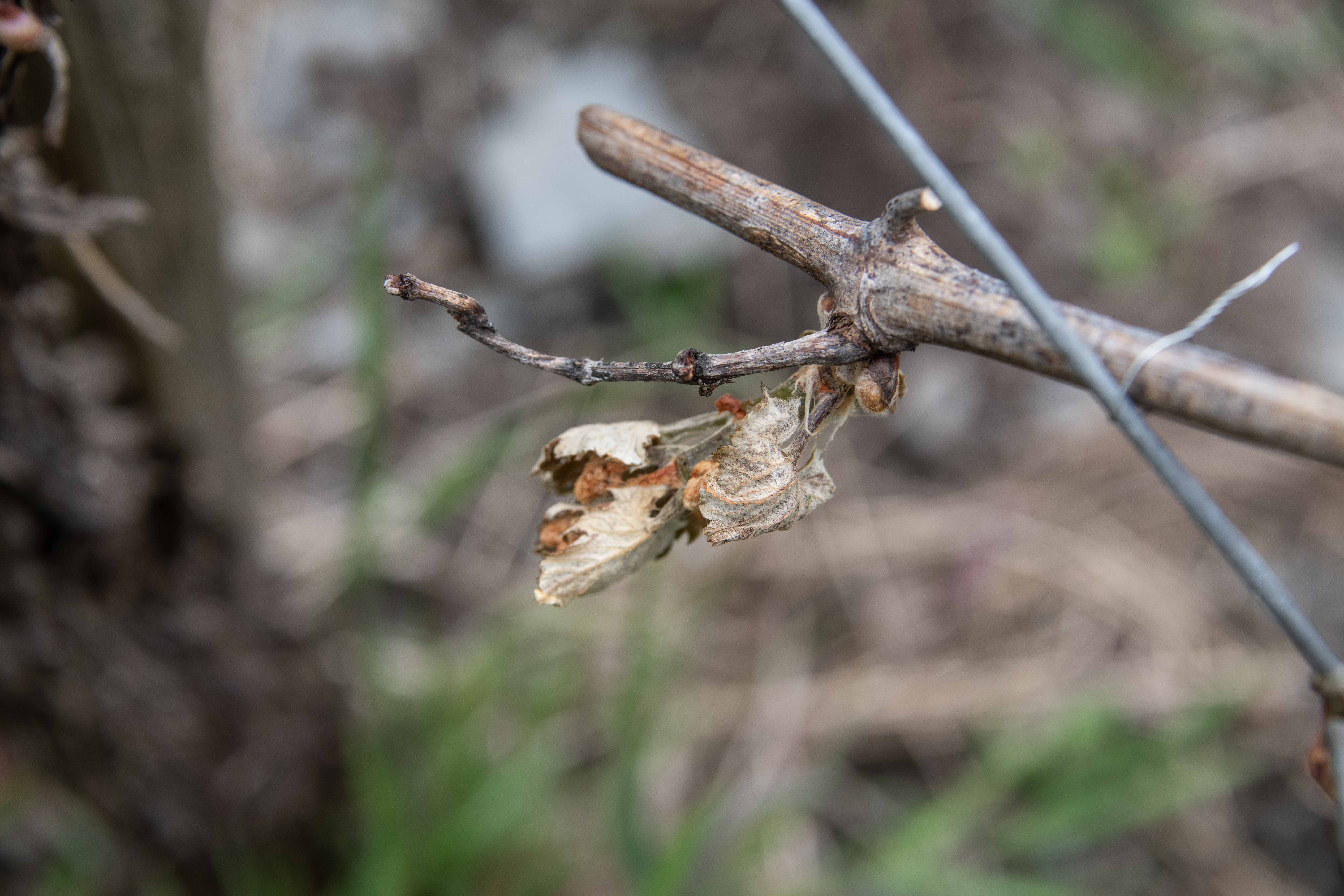
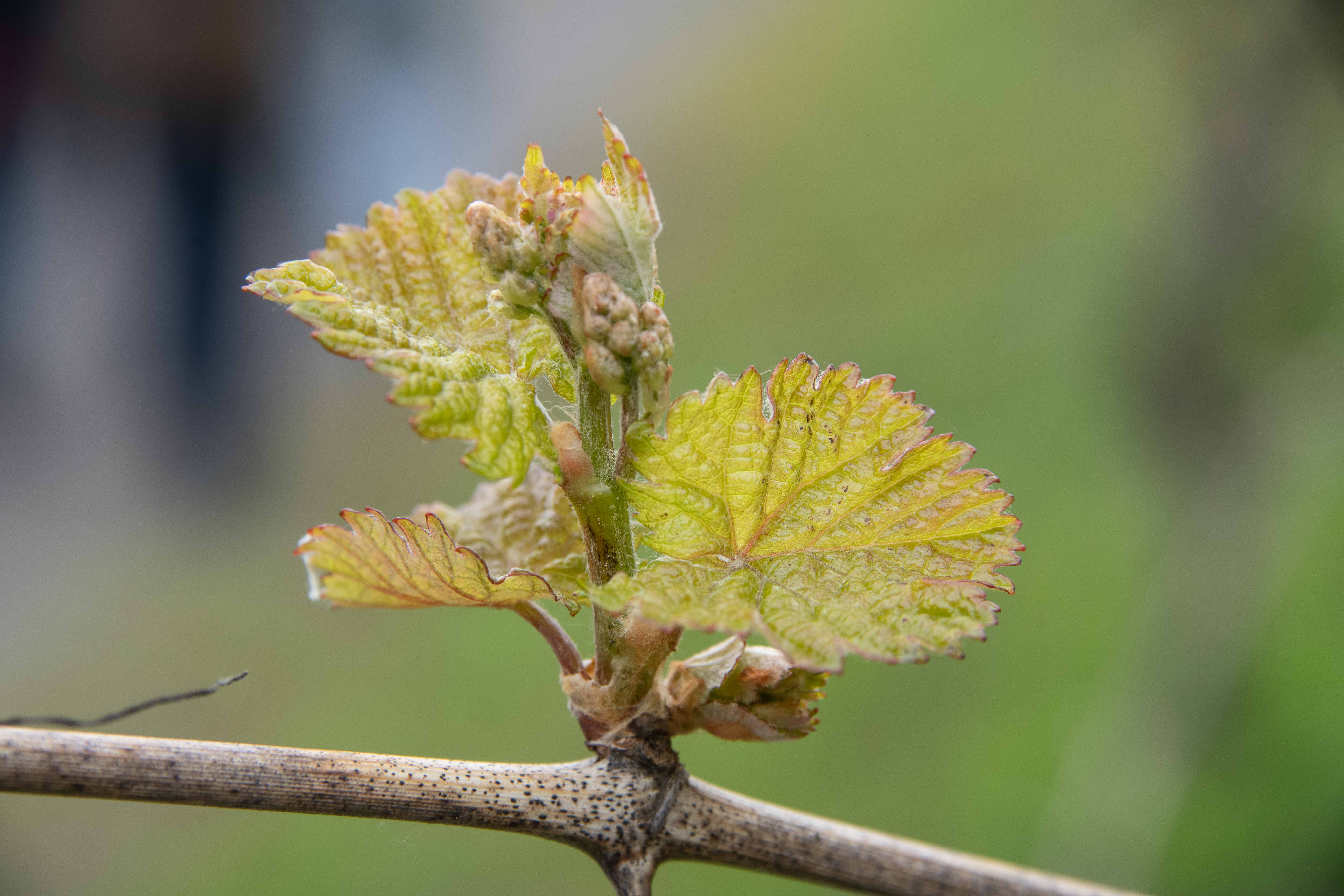
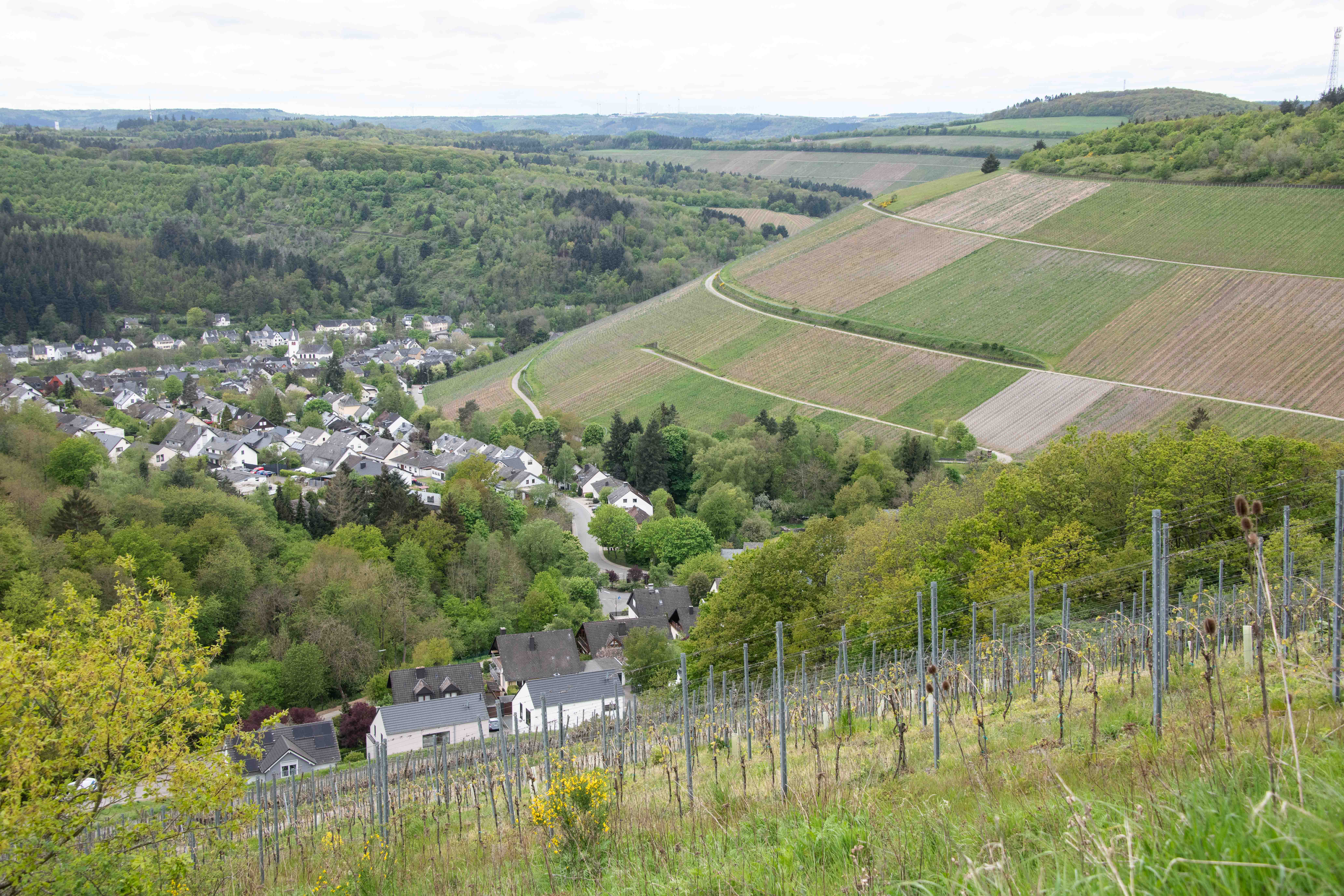
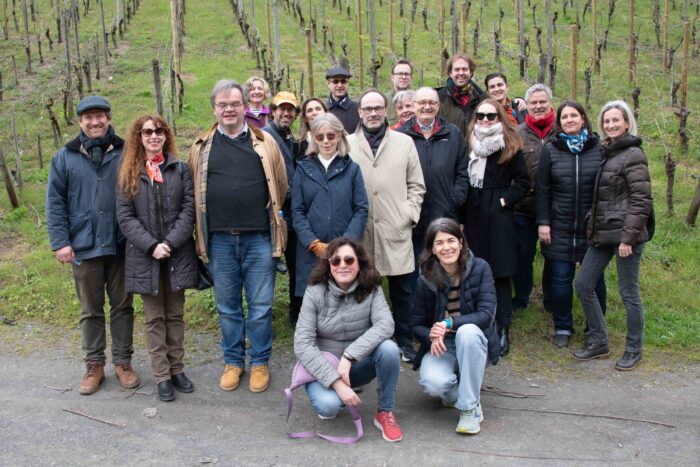
After this it only remained for us all to thank Carmen for her splendid hospitality and very interesting and detailed explanations and head for home, with a few wine cases nestling in the boot of the car. Fortunately Kasel is not far from Luxembourg and easy to find (with a good gps!), so it will be easy to replenish stocks when the time comes. I for one will certainly be back!

